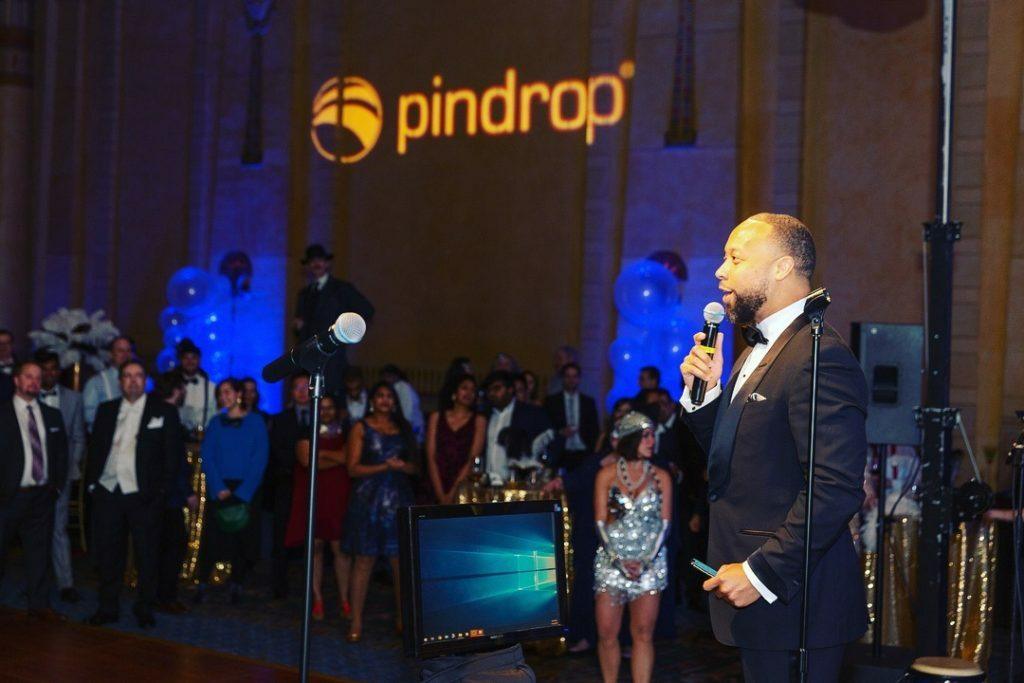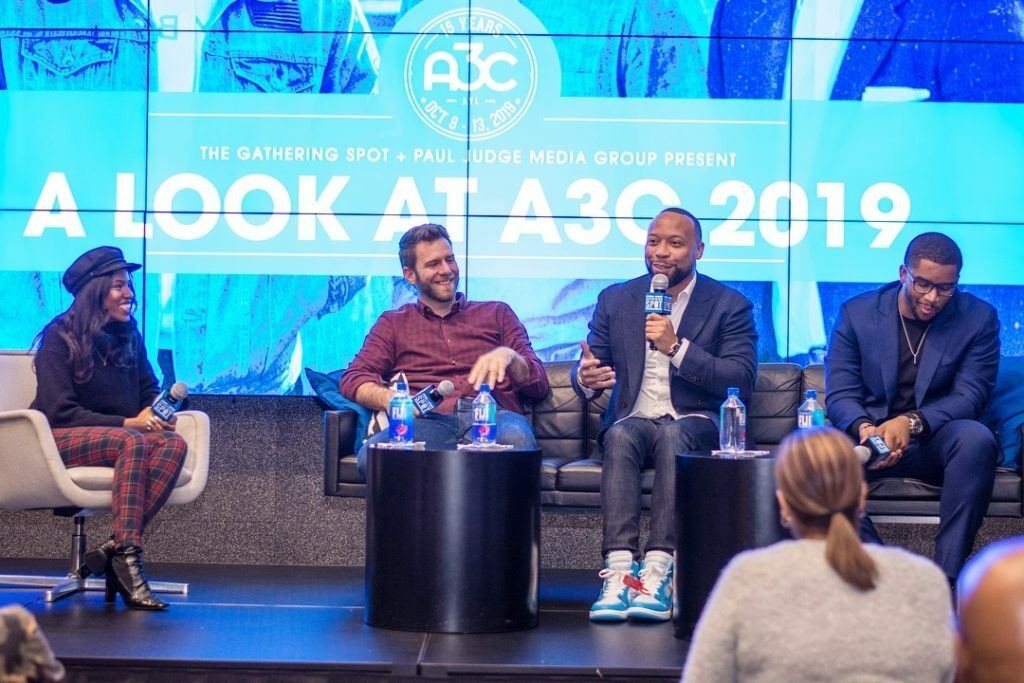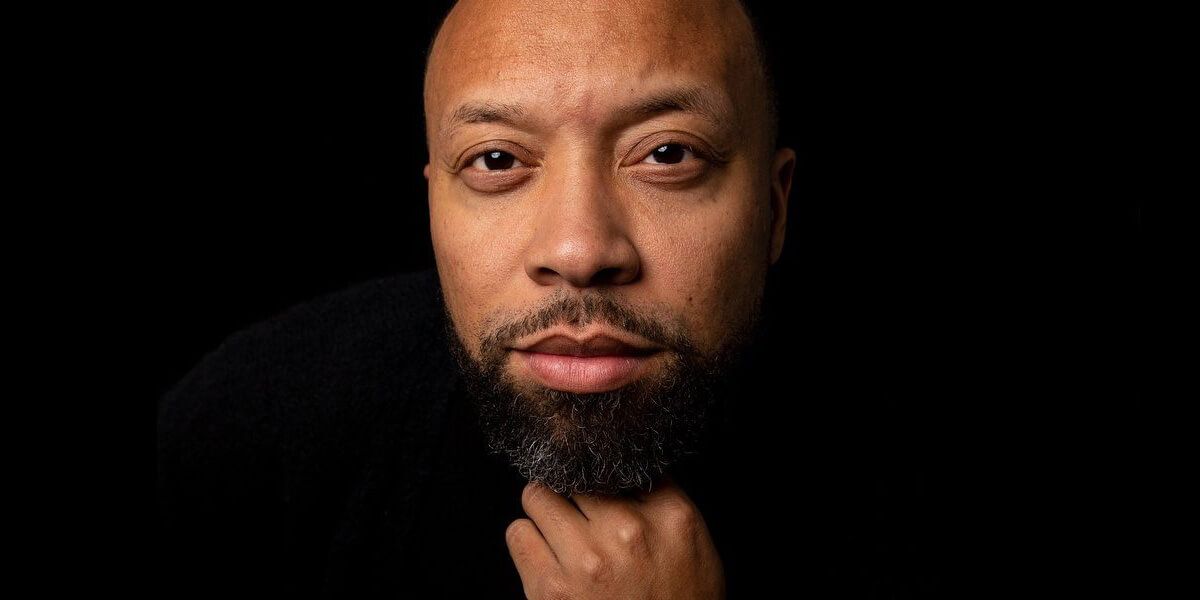Most non-ATLiens who know the name Paul Judge learned it from his current cameos on Bravo’s hit reality series, “The Real Housewives of Atlanta.” (TLDR: NeNe recently infuriated his fiancée, Tanya Sam, by suggesting that Judge wasn’t her ultimate true love.) Locally, however, the entrepreneur-investor’s presence looms large—so much so that he’s often referred to as the city’s “Godfather of Tech.”
Judge has earned the moniker several times over. Today, he serves as a partner at Techsquare Labs, a startup incubator based in Atlanta’s Midtown area, as well as co-founder and executive chairman of Pindrop, a developer of anti-fraud technology for call centers that made waves in December upon closing a $90 million Series D funding round. But the list of receipts rolls on for much, much longer.
A Louisiana native who moved to Atlanta in the mid-90s to attend Morehouse College, Judge has spent years refining (and putting an exclamation point on) the art of serial entrepreneurship. While getting his doctorate in cybersecurity at Georgia Tech, he helped launch CipherTrust, an Alpharetta-based anti-spam email software vendor, zipping past other early hires to become chief technology officer. When the company was acquired by the publicly traded Secure Computing Corporation in 2006 for more than $270 million, Judge—who was offered an equity package upon his hiring—snagged himself a sizeable bag.
“I didn’t know how the math worked at the time, but I thought, If he’s offering an option with less cash, that’s probably the best one,” Judge laughs, ribbing his own C-suite greenness. “I made millions of dollars, and I went, okay, this is how this works. Let’s go do this again.”
It didn’t take long. The next year, he went on to co-found Purewire, a security-as-a-service web platform, and within 18 months sold it to Barracuda Networks, where he stayed on as a VP (which IPO’d in 2013 with a $1 billion market cap). Next up was Luma, which he co-founded in 2015 to make super-charged wifi routers for consumers’ increasingly connected homes and—amid an increasingly crowded smart-router market, with entrants like Google and Samsung—sold to home-security brand First Alert.
That’s all to say that despite Judge being far from new to this, the scope of his importance in A-Town is just now coming into focus nationally. (Notably, Judge sent TechCrunch founder Michael Arrington an unreturned email after his CNN blunder about not knowing any Black founders; seven years later the publication was lauding Pindrop’s fundraise.) While it’s tempting to credit his and Tanya Sam’s RHOA storyline, the source of his recently elevated profile is more likely the resurgent interest in Atlanta itself as an economic hub ripe with talent and opportunity.

The city has become especially more appealing to young Black professionals who, wincing at the cost of living and diversity-scarce industries in other metropolises, increasingly seek Atlanta as refuge. In addition to (much) more affordable housing, the “Black mecca’s” tech scene is also teeming with energy. One in four tech workers are African-American, compared to San Francisco’s paltry 6.4%, says the Brookings Institute, and according to data from Pitchbook, companies in the city raised a whopping $625 million across 35 deals in Q4 2018 alone, compared to $71.25 million across 22 deals during the same period the previous year.
“In 20 years of doing this, there was this phase in the beginning where we’d get term sheets and investors would say, ‘But you have to move to the West Coast,’” Judge recalls. “Now, the mentality is ‘Woah, Atlanta?!’ It’s gone from negative, to neutral, to positive for companies raising money.”
Squint hard enough and you can already see tentacles of Silicon Valley cash working into Atlanta tech ventures, including Judge’s. Among the investors involved in Pindrop’s Series D funding—which the company is using toward expanding into Europe and Asia, and tackling the rising issue of voice fraud, protecting Alexa and Siri (and us) from hackers—are Google’s Capital G and GV funds, as well as the storied venture capital firm Andreessen Horowitz, whose greatest hits including Facebook, Twitter, and Airbnb. (Judge was also recently revealed, alongside Shonda Rhimes and the Pinkett-Smiths, as a limited partner in Andreessen’s $15 million, diversity-focused “Cultural Leadership Fund.”)
Judge, whose seed-stage fund for TechSquare Labs has raised more than $300 million for its portfolio of 30 companies, has naturally emerged into view as both a catalyst and a mentor for Atlanta’s startup ecosystem. “Starting off as an entrepreneur, I was so naive to so many different things,” says Chidiebere Kalu, co-founder of Looklive, a Techsquare portfolio company that helps consumers track down garments and merchandise worn by their favorite influencers (and also suggests cheaper alternatives). “Paul took a chance on me and helped me understand the game. He opened the door for many other Black entrepreneurs, and hasn’t been out there saying, ‘Hey, give me credit.’”
While Judge has resisted the physical pull of the Bay Area throughout his career, it’s clear that he’s maneuvering with some Silicon Valley sensibilities and adopting them into his own swagger in Atlanta. He and his team have recently added onto TechSquare Labs’ 15,000 sq ft offices—where Sams serves as director of partnerships—a coworking space and a corporate innovation center, called Point A, where multinational organizations like Georgia-Pacific and Delta Airlines collaborate with young entrepreneurs, including TechSquare’s, on deploying technologies from machine learning to robotics in efforts to untangle some of their thorniest process inefficiencies. “We’ve made it a habit to go around to these big companies and figure out what problems they have,” says Judge. “And if you can take on those real problems, you can make real startups.”
It’s clear that Judge still has Georgia on his mind and seems more determined than ever in helping to gird Atlanta as a beacon of Black tech. In January, he acquired a controlling stake—along with Ryan Wilson, co-founder and CEO of Atlanta-based networking club, The Gathering Spot—in AC3, the city’s well-known and well-trafficked hip-hop-centric music festival, which drew 30,000 attendees last year. Judge, who’s been featured at the event in previous years, is explicit in his plans to incorporate more technology-focused programming as early as its next outing in October.

“Atlanta has the biggest overlap of culture and technology of any other city in the country, so if you imagine that over the next 10 years, how does [AC3] become Atlanta’s South by Southwest?” Judge posits, referencing the Austin-based convergence of tech, film, and media that famously saw the launch of the Foursquare app, gave rise to the Oculus Rift headset, and features appearances by the likes of Elon Musk, Barack Obama, and Lady Gaga. “As we bring those two pieces together,” Judge says, “That’s what’s going to take us to this next phase of Atlanta technology leadership.”








